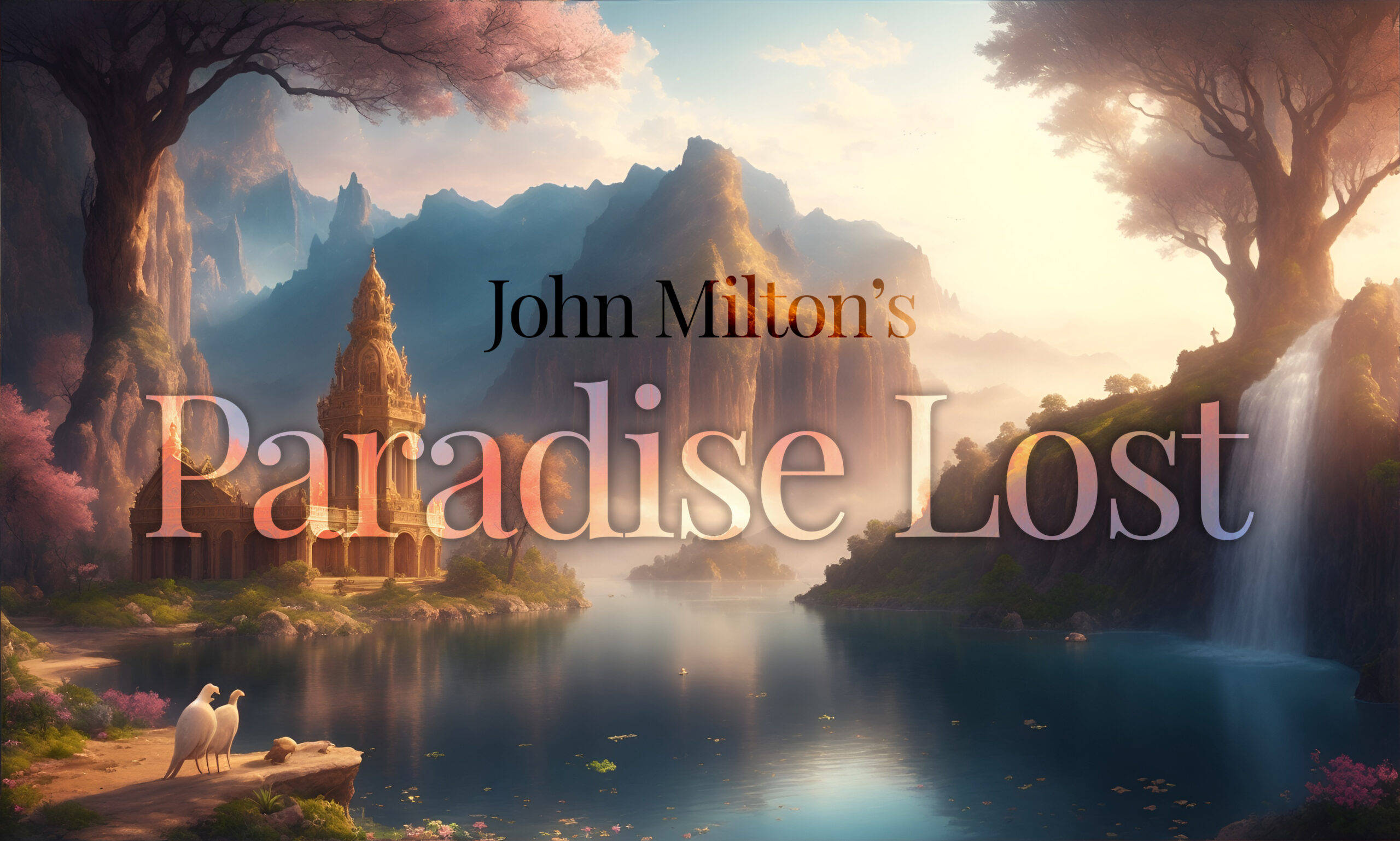Analyze the character of Adam in Paradise Lost. How does Milton portray him as a representative of humanity? Discuss his strengths, weaknesses, and his role in the larger narrative of the poem.

Character of Adam
In John Milton‘s epic poem Paradise Lost, Adam is portrayed as a central character and a representative of humanity. As the first man created by God, Adam embodies the hopes, aspirations, and vulnerabilities of the human race. Through his characterization, Milton explores the complexities of human nature, the potential for moral growth, and the consequences of both obedience and disobedience to divine authority. This analysis will delve into Adam’s strengths, weaknesses, and his pivotal role in the larger narrative of Paradise Lost, highlighting the profound themes and theological implications conveyed through his character.
One of Adam’s primary strengths lies in his capacity for reason and intellect. He is endowed with a keen intellect, allowing him to engage in intellectual discourse and reflect upon his own existence. Milton presents Adam as a rational being, capable of contemplating his surroundings, engaging in philosophical discussions, and seeking knowledge and truth. This intellectual prowess is evident in Adam’s conversations with Raphael in Books V and VIII, where he displays an insatiable curiosity and a desire to understand the workings of the universe.
Furthermore, Adam is portrayed as a deeply compassionate and empathetic character. His love for Eve is unwavering, and he displays a profound sense of loyalty and devotion towards her. In Book VIII, when Raphael warns Adam of the danger posed by Satan and his potential to corrupt Eve, Adam’s immediate response is to protect her and ensure her safety. His love for Eve and his genuine concern for her well-being highlight his capacity for deep emotional connections and his willingness to sacrifice for those he loves.
Adam’s relationship with God is another significant aspect of his characterization. As the representative of humanity, he is given the opportunity to engage in a direct and intimate relationship with his Creator. Milton portrays Adam as obedient to God’s commands, accepting his role as a steward of the Garden of Eden and faithfully adhering to the prohibition of eating from the Tree of Knowledge. Adam’s initial obedience reflects his innocence and his desire to please God.
However, Adam’s characterization is not without weaknesses and flaws. While he possesses reason and intellect, he also demonstrates a degree of naivety and susceptibility to deception. Despite the warnings from both God and Raphael, Adam is easily swayed by Eve’s persuasive arguments to eat the forbidden fruit. His love for Eve and his desire to maintain their unity clouds his judgment, leading him to make a decision that ultimately results in the fall of humanity. This weakness highlights the vulnerability of human nature to temptation and the capacity for moral failure.
Moreover, Adam’s initial lack of self-awareness and self-reflection contribute to his eventual fall. He fails to question his own desires and motives, blindly following Eve’s lead. This lack of critical self-analysis underscores the human tendency to succumb to temptation and to prioritize immediate gratification over long-term consequences. Adam’s character serves as a cautionary tale, reminding readers of the dangers of unchecked desires and the importance of self-examination.
Despite Adam’s weaknesses and his role in the fall of humanity, he also represents the potential for moral growth and redemption. After the fall, Adam demonstrates remorse and a deep sense of guilt for his actions. He accepts responsibility for his part in the transgression and seeks forgiveness from God. His willingness to acknowledge his mistakes and his desire for reconciliation reflect the potential for human beings to learn from their errors and strive for moral improvement.
Adam’s character arc in Paradise Lost is intricately tied to the larger narrative of the poem. His fall, along with Eve’s, serves as the catalyst for the expulsion from the Garden of Eden and the introduction of sin and suffering into the world. The consequences of their actions reverberate throughout the narrative, shaping the destiny of humankind. However, Milton also presents Adam as a figure of hope and redemption. In Book XII, through the visions of the future shown to him by the archangel Michael, Adam gains a glimpse of the redemptive plan of God and the promise of salvation through Jesus Christ. His willingness to accept God’s plan and to have faith in divine providence signifies the potential for human beings to find redemption and restoration.
In conclusion, Adam’s character in Paradise Lost embodies the strengths, weaknesses, and potential of humanity. He is portrayed as a rational, compassionate, and empathetic being, capable of deep emotional connections and intellectual pursuits. However, his weaknesses and susceptibility to temptation contribute to the fall of humanity. Through Adam’s character, Milton explores profound themes of human nature, moral growth, and the consequences of both obedience and disobedience to divine authority. Despite his fall, Adam represents the potential for moral improvement and redemption, offering readers hope amidst the consequences of human frailty. Milton’s characterization of Adam contributes to the rich tapestry of themes and theological implications in Paradise Lost, making the epic poem a timeless exploration of the human condition.
*****
Read More: Questions and Answers from Paradise Lost by John Milton


